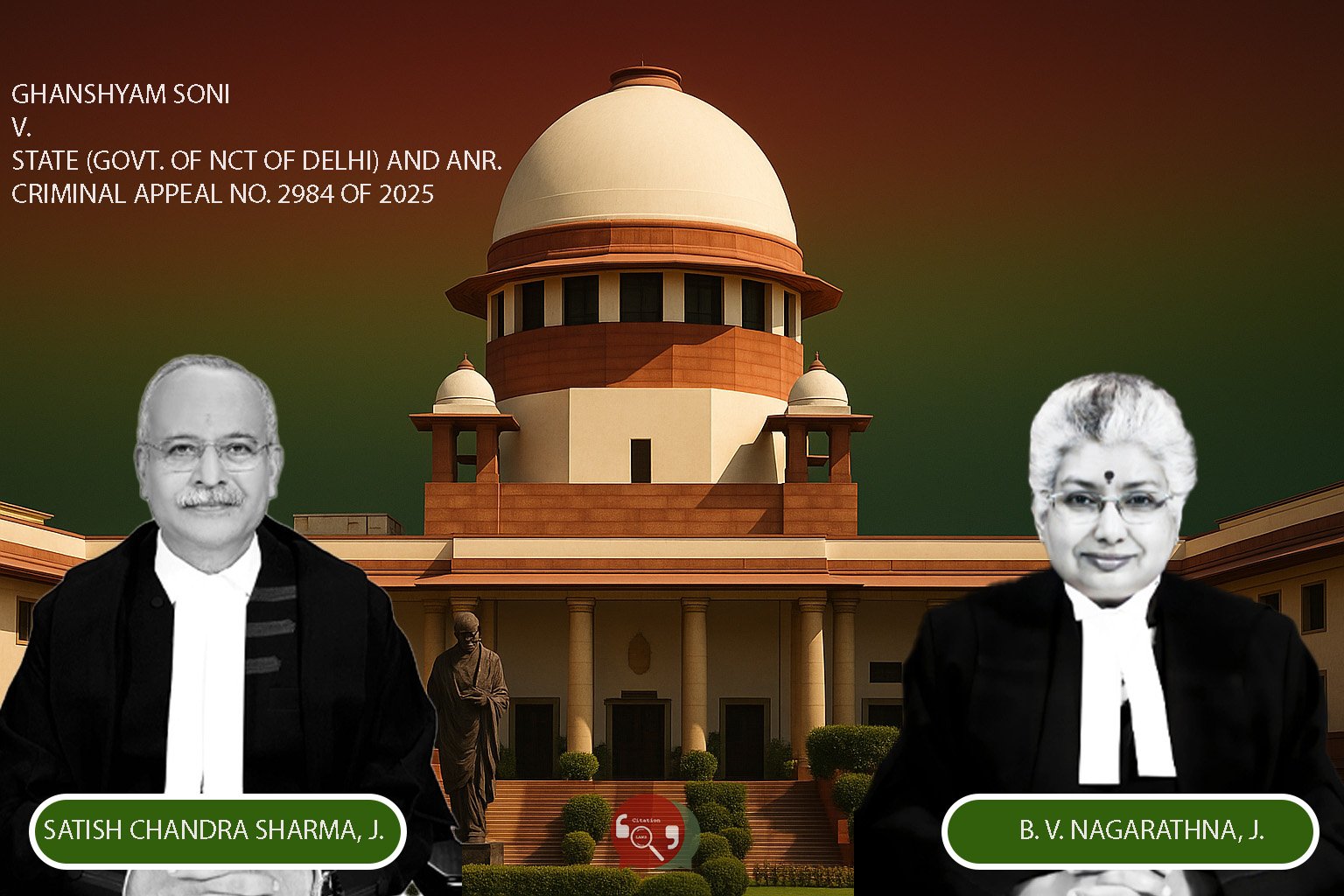The Bench comprising of Satish Chandra Sharma, J. and B.V. Nagarathna, J. has delivered a significant judgment on the interplay of limitation under Section 468 CrPC and Section 498-A IPC. The Hon’ble Court laid down crucial principles regarding the computation of limitation in continuing offences and addressed the misuse of criminal machinery in matrimonial disputes. The Appellant, Ghanshyam Soni, a Delhi Sub-Inspector, was charged under section 498-A, 406 and 34 IPC on a complaint filed by his wife, alleging cruelty and dowry demands by him and his family. The Sessions Court discharged the accused on grounds of limitation and dubious allegations, which was reversed by the High Court. The Hon’ble Supreme Court restored the discharge, holding that although the complaint was filed within limitation, no prima facie case of cruelty was made out.
FACTS OF THE CASE
The Appellant, Ghanshyam Soni, a Delhi Sub-Inspector, was charged under section 498-A, 406 and 34 IPC on a complaint filed by his wife, alleging cruelty and dowry demands by him and his family. It was alleged that physical and mental cruelty and dowry demands of Rs. 1.5 lakhs, a car and a separate house, including threats and physical violence in 1999. The first complaint was filed on 18.09.1999, and a subsequent complaint was filed on 06.12.1999, but the same was later withdrawn. The third complaint was filed on 03.07.2022 and the same was converted into FIR No. 1098/2002 on 19.12.2002. The Sessions Court discharged the accused on grounds of limitation and dubious allegations, which was reversed by the High Court. Thereafter, the same was challenged before the Hon’ble Apex Court.
STATUTES INVOLVED
- Section 498-A IPC: cruelty by husband or relatives.
- Section 406 IPC: criminal breach of trust.
- Section 34 IPC: common intention.
- Section 468 CrPC: bar to taking cognizance after lapse of limitation.
- Section 473 CrPC: extension of limitation in the interest of justice.
- Section 482 CrPC: inherent powers of High Court.
- Article 142: Complete justice by Supreme Court.

